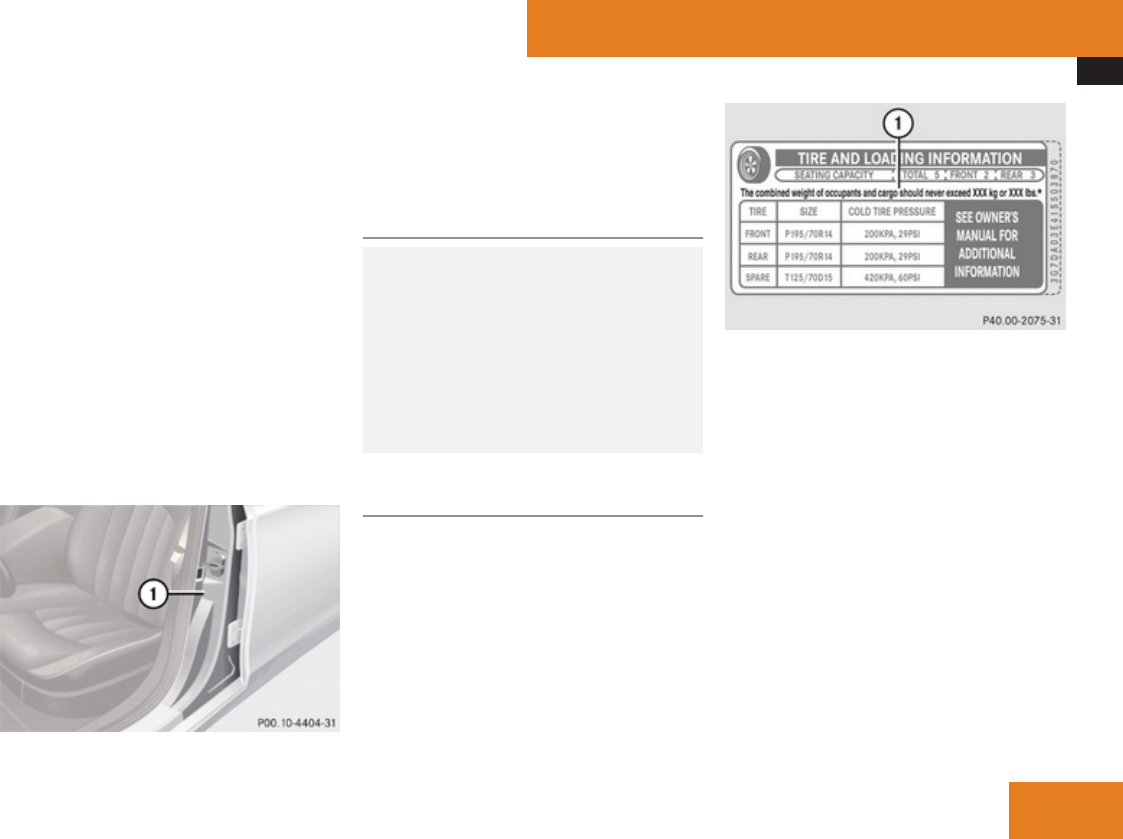
Tires and wheels
207
sures for the original equipment tires on
your vehicle.
(2) The certification label, also found on the
driver’s door B-pillar. It tells you about the
gross weight capacity of your vehicle,
called the Gross Vehicle Weight Rating
(GVWR). The GVWR includes the weight
of the vehicle, all occupants, fuel and
cargo. The certification label also tells
you about the front and rear axle weight
capacity, called the Gross Axle Weight
Rating (GAWR).
The GAWR is the total allowable weight
that can be carried by a single axle (front
or rear). Never exceed the GVWR or
GAWR for either the front axle or rear
axle.
1
Driver’s door B-pillar
Following is a discussion on how to work with
the information contained on the Tire and
Loading Information placard with regards to
loading your vehicle.
Tire and Loading Information
G
Warning!
Do not overload the tires by exceeding the
specified load limit as indicated on the Tire
and Loading Information placard on the
driver’s door B-pillar. Overloading the tires
can overheat them, possibly causing a
blowout. Overloading the tires can also
result in handling or steering problems, or
brake failure.
Tire and Loading Information placard
i
Data shown on Tire and Loading Informa-
tion placard example are for illustration
purposes only. Load limit data are specific
to each vehicle and may vary from data
shown in the following illustration. Refer to
Tire and Loading Information placard on
vehicle for actual data specific to your vehi-
cle.
1
Load limit information on the Tire and
Loading Information placard
The Tire and Loading Information placard
showing the load limit information is located
on the driver’s door B-pillar (Y page 206).
X
Locate the statement “The combined
weight of occupants and cargo should
never exceed XXX kilograms or XXX lbs.”
on the Tire and Loading Information plac-
ard.
The combined weight of all occupants,
cargo/luggage and trailer tongue load (if
applicable) should never exceed the weight
referenced in that statement.
Operation
Z


















